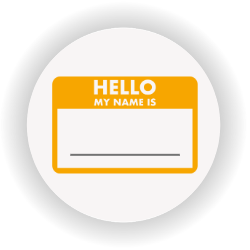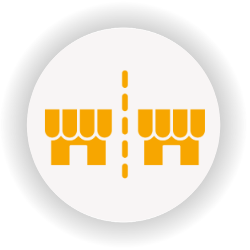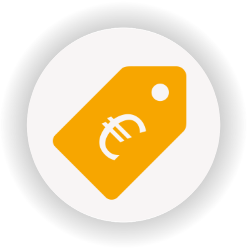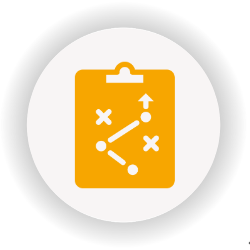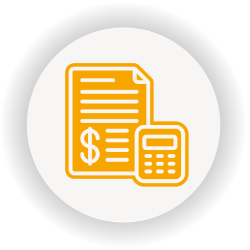The centrepiece of your planning
Your business plan
In order to assess your application for a visa or a residence permit, the immigration authorities require a business plan. It is the centrepiece of your application. The business plan is also the basis for discussions and negotiations with banks or other partners, for example. Below you will find a link to our multilingual wordbooks that will aid you in drafting your personal business plan. If you have further questions or need help, please don’t hesitate to call us or write us an e-mail.
The two most important reasons for the business plan
- The business plan presents the opportunities and risks of your self-employment. It is the roadmap for your establishment and for the necessary steps. Through your business plan, you check whether you can reach your goals or have to adjust them.
- The business plan is obligatory when you apply (i) for your residence permit or (ii) later for a loan from a bank. Your business plan must clearly show that you have enough customers for your idea and that you can earn enough money to provide for yourself.
Your business plan forms the basis of your application for your residence permit and is important for discussions with stakeholders. In the business plan, you should describe your idea and the steps you plan to take to implement it briefly, precisely, comprehensibly and in a way that is clear to others: Why you want to be self-employed. What personal skills and entrepreneurial abilities you possess. Why your idea is good. Who your customers are. How much you plan to earn. How you will finance your company. And much more...
Form: There are no set rules for the form, structure and scope of a business plan. To provide orientation for a possible structure, we have developed a business plan workbook, which you can find further down on this page.
Language: You should write your business plan in German, or have it translated. Your business plan will be assessed in Germany and will also serve as a basis for discussions and negotiations.
You will also need to create a financial plan. In the financial plan, you must make it clear that you will earn enough money. You must therefore list your income and expenses in the financial plan. We explain how to do this below.
Summary
The summary is found at the beginning of your business plan. Here you provide a concise and precise description of yourself and the key points of your business idea. The short description should spark interest in you and your idea. There should be a recognisable central theme. It is often best to write the summary once you have completed all of the other §s of the business plan. The summary should not be more than one page in length.
My Profile
Describe what motivates you, your qualities and skills. Refer to your curriculum vitae for more details. You should also state if you are supported by your family. If your self - employment demands formal qualifications (e.g. master craftsman certificate, degree), you must be able to prove that the qualifications that you have acquired outside Germany are equivalent to those required.
My business name
A good company name draws attention to your product or service, is memorable and immediately reveals the benefits. It's even better if you can tell a personal story about your company name. Also, ensure that your company name is legally permissible: the name must not already have been assigned to another company or infringe on a protected trademark. Also, the name must not be used to provide false information about what the company does.
My marketing / my advertising
For your customers to find out about your product or service, you have to address them in a targeted manner. Describe the media and methods you want to use to promote your product or service and why you want to use them. Consider (i) the media you use, (ii) the content, and (iii) the cost of your advertising.
My business form
Before you set up your company, you must carefully consider what legal form your company should have. Describe which legal form you are planning and why. Describe whether you have to observe formal requirements. We have summarised the advantages and disadvantages as well as the requirements of the different legal forms on our page The correct legal form.
My strategy
Describe your goals for the period after start-up and what strategy you will employ to pursue these goals. Think about what you would like to achieve with your company in one year and three years. You should formulate your goals in such a way that they are measurable and realistic (production figures, sales, profit, number of locations, number and qualifications of employees).
My financial plan
The financial plan is an important part of your business plan. The financial plan must make clear that you will earn enough money. You should therefore list your income and expenses in the financial plan. Draw up a table with the following items:
What purchases are necessary for your self-employment? Record your start-up expenses and write down what you spend the money on.
- What investments are needed?
- What costs will arise in preparing for launch?
- What costs will arise for possible investments?
- What costs will arise for other expenses?
- What costs are there for manufacturing my product / for buying the product?
- What is the monthly cost of my office / shop / workshop?
Where will you get the money from, or do you have your own money? There are basically two types of financing: with equity (i.e. your own money or that of your business partners) and external or debt capital (i.e. loans from external parties, such as banks). There is also the possibility of receiving money from state subsidy programmes. We have compiled some options for you on the “Financing my company” page.
- How high is my own capital?
- What material expenses do I have and can I utilise?
- What level of loan / grant can I use?
- Do I have a borrowing requirement that I need to draw on?
What income and expenses do you plan for your self-employment? Consider various alternatives, and how much your monthly income and expenses will be in the next three years. Think about the maximum amount you can spend and the minimum turnover you need to generate to cover your costs. Take your calculated living expenses into account.
- What price can I set for my product / my service?
- How high are my monthly fixed costs?
- What is the minimum turnover that I must achieve to cover my costs?
- By when do I want to be achieving this minimum turnover?
- How many products do I need to sell / how often do I need to provide my service to achieve this turnover?
What other income and expenses should you consider for your cost of living? Show the development of your available cash reserves. Do not underestimate the amount of your expenses. You should always plan for sufficient financial reserves.
- How much money do I spend on my business per month?
- How much money do I spend on myself and my family per month?
- How much money do I spend on social insurance contributions / pension per month?
- How high are my earnings from my business?
- Do I have other sources of income?
When drawing up your financial plan, you should consider that (i) the price structure, (ii) the income structures and (iii) the taxes and social security contributions in Germany differ from your home country and that this should be considered when calculating your cost of living. The financial plan should also be submitted in German.
To help you write your business plan, we have created this bilingual workbook to aid you step by step in creating your business concept. On the last page of the book, you will find a diagrammatic business model where you can make initial notes for your business idea.
If you follow the six subject blocks step by step, you should end up with the first draft of your business plan. At the start of every subject block, we have provided a brief summary of what you should describe or explain. We have then asked the questions you have to answer to describe your business idea and concept in greater detail.



